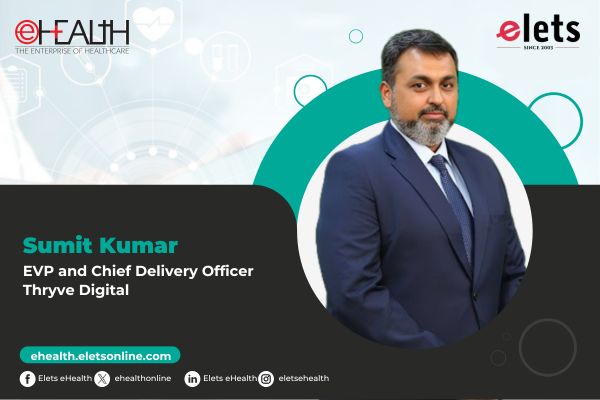
The pandemic has created a unique opportunity to do greater justice to the much neglected Indian healthcare writes Dr Ravi Gaur, MD Director & Chair Medical Advisory Committee, Oncquest laboratories limited.
The COVID-19 is the biggest pandemic our generation has ever experienced, but it may not be the last one. Even before the COVID-19 turned our world upside down, every day we had many reports of natural disasters and epidemics affecting millions of lives. This global humanitarian crisis has also forced us to pause, reflect and reset and offered us a chance for a new beginning. As Charles Darwin said, “It is not the strongest of the species that survives, nor the most intelligent that survives. It is the one that is the most adaptable to change.” We need to adopt to the change at a rapid pace.

Science and our determined fight to overcome the COVID-19 pandemic has given us a second chance to build back our lives, improve upon our systems and regain our strength. The efforts have proven that a lot of coordination is required between various healthcare providers (both govt and private), to overcome any healthcare challenge. Whenever there was a rejection of facts and an ignoring of the directions and when providers went in their own direction, the virus went in every direction. Uncoordinated efforts can never bring results. Loaded with experience, willingness to adopt, technology and data, it is time to rethink and make a new start towards a futuristic path.

Also read: Oncquest Lab acquires Quest Diagnostics Indian facilities

COVID-19 has caused a massive acceleration in the use of digital technology in healthcare. Fast consumer adoption of digitization has served to fast-forward these developments. The repercussions of this technological leap will certainly be felt over the coming years. There is no doubt that the patient-provider experience during the past several months has accelerated virtual models of care by five to ten years.

The explosive adoption of telehealth, necessitated by the need for social distancing and safety, will continue to surge in the coming years and should become a key element in healthcare delivery. For rural and remote populations that lack adequate healthcare facilities, penetration of telehealth based platforms will help bring greater equity in healthcare delivery.
We will witness faster adoption of digital health tools across the spectrum including hospitals, pathology, and other diagnostic centres. Data sharing is expected to trigger a global response towards better pandemic identification and management. Deployment of such AI-based technology will become a regular feature of pandemic management systems.
Besides technology, biomedical research is expected to receive a boost in a post-pandemic world. With an invisible virus bringing the world to its knees, there is a greater realization that greater investment in medical research will help boost our preparedness against future crisis. After all, after healthcare workers, the scientists & medical researchers, who have emerged as the real heroes in this global fight and delivered vaccines in record time.
The importance of the medical supply chain has never been clearer. I hope that after this crisis, we will have an enduring discussion on how we can create high quality, robust, safe, regular, and transparent supply chains.
We need to integrated home care, behavioral & physical health services, create hyperlocal healthcare & community prevention plans and leverage data, analytics &technology. Healthcare will also witness a greater shift towards the personalization of treatment.
New financial pressures resulting from the COVID-19 pandemic may increase acquisition and consolidation.
Result-oriented PPPs are required to address unmet health related basic needs. All this will require governments, academic institutions, private providers, and philanthropic organizations to reassess their processes. To promote change within healthcare systems and further, a coordinated effort by all stakeholders— governments, companies, and health institutions— is required. Looking ahead, the recovery from COVID-19 must address the preexisting conditions it has exposed and exploited, from gaps in primary to tertiary healthcare. Stronger health systems and universal health coverage must be a priority.
Highly commendable work has been done by all healthcare providers with genuine sincerity and today in the face of the COVID-19 pandemic; we have a unique opportunity to do greater justice too much neglected Indian healthcare. Let us not loose this opportunity and taking it forward with leading spirit!
Be a part of Elets Collaborative Initiatives. Join Us for Upcoming Events and explore business opportunities. Like us on Facebook , connect with us on LinkedIn and follow us on Twitter , Instagram.
"Exciting news! Elets technomedia is now on WhatsApp Channels Subscribe today by clicking the link and stay updated with the latest insights!" Click here!
















